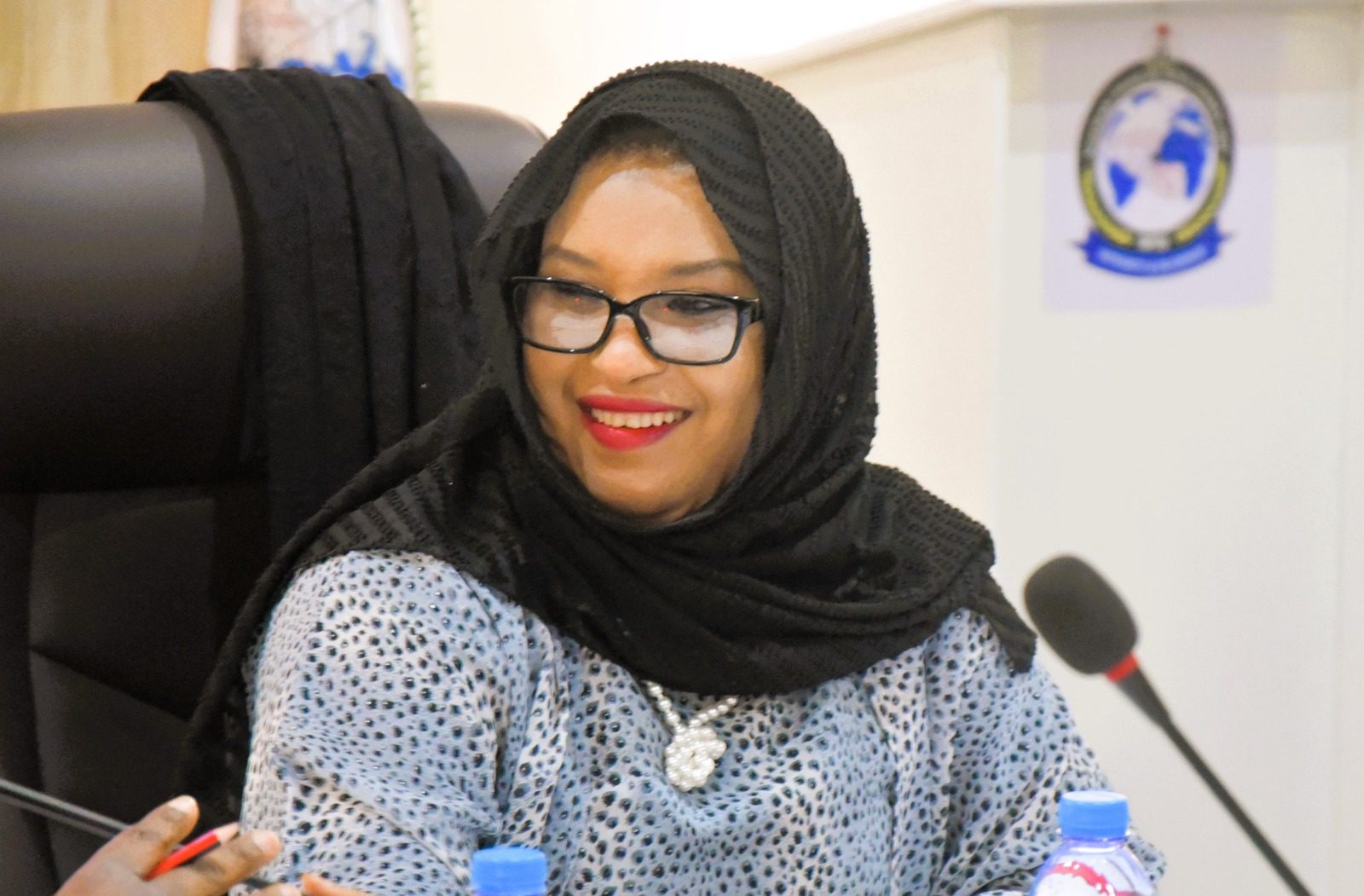Nigeria’s Remarkable Victory: The Inspiring Journey to Breaking Free from the FATF Grey List

At the Financial Action Task Force (FATF) plenary held in Paris on October 24, 2025, Nigeria was officially removed from the FATF’s “grey list”-a category assigned to nations under heightened international scrutiny for deficiencies in combating money laundering and terrorist financing. Alongside Nigeria, South Africa, Mozambique, and Burkina Faso were also delisted, signaling a significant milestone after a demanding two-year period for Nigeria, Africa’s most populous country.
Rather than a moment of public fanfare, this achievement reflects relentless, behind-the-scenes efforts: drafting comprehensive policies during late hours, resolving inter-agency disputes, and reforming a financial system long criticized for opacity and mistrust.
The grey list, formally known as jurisdictions under increased monitoring, carries substantial implications in global finance. Since Nigeria’s inclusion in February 2023, the nation faced tougher scrutiny from international banks, higher transaction costs, and diminished investor confidence due to reputational damage.
The FATF’s 2023 mutual evaluation report highlighted critical gaps, including weak enforcement of anti-money laundering (AML) laws, fragmented intelligence sharing, and inadequate supervision of high-risk sectors such as real estate and NGOs.
Out of FATF’s 40 core recommendations, Nigeria was mostly rated as partially compliant, falling short of the “compliant” or “largely compliant” benchmarks essential for global trust. This translated into practical challenges for everyday Nigerians-whether diaspora remitters or Lagos entrepreneurs-who experienced delays, increased fees, and a persistent stigma attached to the country’s financial system.
Removing Nigeria from the grey list was a gradual process, requiring strict adherence to a detailed 19-point action plan developed in partnership with FATF and the Inter-Governmental Action Group Against Money Laundering in West Africa (GIABA).
By mid-2025, Nigeria had met nearly all criteria, achieving compliant or largely compliant ratings on 37 of the 40 FATF recommendations-a remarkable leap from its previous standing. These reforms were comprehensive, involving legislative amendments to close loopholes, institutional restructuring to improve coordination, and a focused push to convert policies into successful prosecutions.
Two landmark laws enacted in 2022, prior to the grey listing but accelerated under President Bola Tinubu‘s administration, were central to this progress.
The Money Laundering (Prevention and Prohibition) Act and the Terrorism (Prevention and Prohibition) Act broadened the scope of criminal offenses to include undeclared cross-border transfers and financing linked to weapons of mass destruction.
These statutes empowered prosecutors with enhanced legal tools. By 2024, the Economic and Financial Crimes Commission (EFCC) reported a 40% rise in convictions related to financial crimes, many tied to narcotics trafficking in the Niger Delta and terrorist activities in the northeast.
However, legislation alone was insufficient. The most significant strides were made during implementation, led by the Nigerian Financial Intelligence Unit (NFIU) under CEO Hafsat Abubakar Bakari.

Bakari, a veteran intelligence expert known for her pragmatic leadership, spearheaded the 2024 launch of a national Beneficial Ownership Register.
This digital platform, managed by the Corporate Affairs Commission, exposes the true owners behind shell companies-a notorious haven for illicit funds in Nigeria’s oil industry.
“Since its launch, the register has identified over 500 opaque entities,” an NFIU report stated, enabling asset freezes linked to nearly $150 million in suspected illicit proceeds. Bakari’s team also revamped risk assessment procedures, mandating banks and telecom companies to use AI-driven analytics to identify high-risk clients, shifting from reactive investigations to proactive risk mitigation.
Improved inter-agency cooperation was another cornerstone. Previously hindered by siloed operations among the NFIU, Central Bank of Nigeria (CBN), EFCC, and police, the Tinubu administration established the National Task Force on AML/CFT in May 2023, chaired by Attorney-General Lateef Fagbemi.
With Finance Minister Wale Edun and Interior Minister Olubunmi Tunji-Ojo as alternate chairs, the task force instituted weekly coordination meetings.


“We broke down barriers,” Fagbemi remarked during a June 2025 briefing, noting that shared intelligence platforms facilitated over 200 joint operations, disrupting financial networks linked to Boko Haram affiliates.
Supervision was extended to “designated non-financial businesses and professions” (DNFBPs), including real estate agents, lawyers, and jewelers, who often serve as conduits for money laundering. The Interior Ministry mandated training for 10,000 DNFBP professionals by early 2025 and conducted surprise inspections that uncovered $80 million in undeclared cash.
Meanwhile, the Finance Ministry incorporated FATF standards into the CBN’s regulatory framework, introducing risk-based penalties that lowered non-compliance fines from 15% to under 5% for inspected entities.
Sector-specific efforts included audits of artisanal gold mining by the Ministry of Solid Minerals under Dele Alake, targeting smuggling hotspots, and cargo inspections by the Ministry of Aviation, led by Festus Keyamo, to detect illicit shipments.
Funding for these initiatives was embedded in the 2024 national budget’s digital transformation agenda. President Tinubu endorsed a partnership between the NFIU and the National Information Technology Development Agency (NITDA) to implement ‘Project Exit,’ aimed at modernizing AML/CFT data management and compliance systems to meet FATF standards.
Defence Minister Mohammed Badaru Abubakar and Foreign Affairs Minister Yusuf Tuggar ensured military intelligence supported financial investigations, while the National Security Adviser coordinated sanctions enforcement through the Nigeria Sanctions Committee chaired by Fagbemi.
Despite these gains, challenges persist. Civil society groups criticized delays such as the Beneficial Ownership Register’s six-month postponement in 2024 due to data privacy concerns. Additionally, rural courts face case backlogs, slowing prosecutions.
| Category | Key Recommendations Enhanced (Examples) | Specific Reforms/Actions | Status Achieved (2025) | Impact/Outcome |
| Legal Framework | Reduction of non-compliance fines by 70%, easing global banks’ de-risking. | Enactment of Money Laundering (Prevention & Prohibition) Act 2022; Terrorism (Prevention & Prohibition) Act 2022; Proceeds of Crime (Recovery & Management) Act 2022. Closed gaps on undeclared transfers and proliferation financing. | C/LC (8 upgraded from PC/NC) | 40% increase in EFCC convictions; asset freezes totaling $150M in illicit funds. |
| Risk Assessment & Coordination | R.1 (Risk-based approach), R.2 (National cooperation) | National Task Force on AML/CFT (chaired by AG Fagbemi); weekly inter-agency meetings (NFIU, CBN, EFCC); AI-driven risk assessments for banks and telecoms. | C/LC (5 upgraded from PC) | 200 joint operations; disruption of Boko Haram financing networks through shared intelligence. |
| Beneficial Ownership & Transparency | R.24 (Legal persons), R.25 (Legal arrangements) | Launch of Beneficial Ownership Register (2024) by Corporate Affairs Commission/NFIU; mandatory corporate disclosures. | LC (2 upgraded from LC/PC) | Exposure of 500+ shell companies; improved foreign direct investment screening in oil and real estate sectors. |
| Financial Institutions Oversight | R.10-13 (CDD, record-keeping, PEPs), R.26 (Regulation) | Integration of FATF standards into CBN guidelines; risk-based penalties; training for over 5,000 bank staff. | C/LC (7 upgraded from PC/NC) | Accelerated mutual legal assistance; participation in FATF Guest Jurisdictions Initiative for 2026. |
| DNFBPs & High-Risk Sectors | R.22-23 (DNFBP CDD/measures), R.28 (DNFBP supervision) | Mandatory training and audits for 10,000 real estate and legal professionals (Interior Ministry); sector audits in mining and aviation (Alake/Keyamo). | C/LC (4 upgraded from NC) | $80M in undeclared cash seized; curbed laundering in gold smuggling and cargo sectors. |
| FIU & Enforcement Powers | R.29 (FIU), R.30-31 (Law enforcement responsibilities/powers) | Technological upgrades to NFIU portal via ‘Project Exit’ (NITDA collaboration approved by Tinubu in 2024); 300% increase in intelligence reports (under Bakari). | C (3 upgraded from PC) | Improved prosecutions; 50% rise in suspicious transaction reports (STRs). |
| International Cooperation | R.36-40 (Mutual legal assistance, extradition, other cooperation) | Nigeria Sanctions Committee (16 agencies, chaired by Fagbemi); partnerships with GIABA and FATF for technical assistance. | LC (3 upgraded from PC) | Faster mutual legal assistance; inclusion in FATF Guest Jurisdictions Initiative for 2026. |
| Other (Reporting, Sanctions, Statistics) | R.20 (STRs), R.32 (Cash couriers), R.33 (Statistics) | Prohibitions on tipping-off; enforcement of cross-border cash declarations; annual statistical reporting. | C/LC (5 upgraded from PC/LC) | Enhanced compliance with UN Security Council Resolutions; improved tracking of $20B in remittances. |
Key Milestones Timeline
- 2023-2025: Under President Tinubu’s stewardship, with key figures like Hafsat Abubakar Bakari (NFIU), Wale Edun (Finance), and Lateef Fagbemi (Justice), Nigeria intensified enforcement, coordination, and reforms-including the Beneficial Ownership Register and DNFBP audits-achieving compliant or largely compliant status on 37 FATF recommendations.
- 2021: FATF’s Mutual Evaluation Report rated Nigeria as compliant or largely compliant on only 13 of 40 recommendations, with 4 non-compliant and the rest partially compliant, raising the risk of grey listing.
- 2022: Nigeria passed three critical laws under then-President Muhammadu Buhari, addressing legal gaps but lacking full enforcement mechanisms.
- February 2023: Nigeria was placed on the FATF grey list due to slow implementation progress, triggering the 19-point action plan.
Restoring Financial Flows Amid Persistent Challenges
For Nigeria’s $440 billion economy, removal from the grey list signals a gradual easing rather than an immediate transformation. The grey listing had imposed heavy costs: remittances, which support about 10 million households, faced 10-15% higher fees and delays, causing an estimated $2-3 billion annual efficiency loss.
Foreign direct investment (FDI) dropped sharply to $2.3 billion in 2023 from $5.4 billion pre-grey listing, as banks curtailed exposure to Nigerian entities. Portfolio investors, deterred by compliance hurdles, redirected capital elsewhere, leading to a 20% decline in foreign participation on the Nigerian Stock Exchange.
Post-delisting, projections indicate a realistic recovery. Remittance costs could decrease by 10-15% within six months, injecting an additional $1-2 billion into consumer spending.
Picture increased commercial vibrancy in cities like Kano or more families in Enugu affording school fees. The World Bank’s July 2025 report forecasts FDI rebounding to $4-5 billion by 2026, attracted by eased banking scrutiny and a more transparent risk environment.


Industries such as fintech and agriculture stand to gain. Firms like Flutterwave, licensed in over 30 countries, could cut cross-border payment times from days to hours, accelerating e-commerce growth.
Nevertheless, challenges like 25% inflation and ongoing security issues temper optimism.
Delisting is a foundational step, not a cure-all. Lauren van Biljon of Allspring Global Investments cautions that sustainable economic benefits may translate to a 5-7% GDP growth over three years if reforms persist.
For everyday Nigerians-from Lagos mechanics awaiting remittances to exporters in Abuja facing foreign exchange hurdles-this development offers modest relief and renewed hope for financial stability. If maintained, these reforms could help close Africa’s $100 billion FDI gap and position Nigeria as a reliable gateway for investment.
Perspectives from Industry Leaders
President Tinubu, in an official State House statement, declared: “This accomplishment goes beyond technicalities; it is a strategic victory for our economy and a renewed affirmation of Nigeria’s financial governance.” He lauded Bakari’s team, saying, “Without their steadfast dedication, this success would not have been achievable.”
FATF’s Madrazo, addressing the plenary, praised the “political will demonstrated,” adding, “Nigeria has strengthened its ability to investigate and prosecute, focusing resources on combating crimes that most harm society, such as drug trafficking and terrorist financing.” Her remarks echoed Finance Minister Edun’s closing words: “We remain committed to building a safer, more secure Nigeria.”
On social media, fintech pioneer Olugbenga “GB” Agboola, CEO of Flutterwave, summarized: “This delisting restores trust, lowers remittance and cross-border costs, and enables faster, cheaper payments… signaling Nigeria’s return to financial credibility.”
Paga founder Tayo Oviosu added: “This is the best news today… it will boost foreign direct investment and Western engagement.”
Financial analyst Akíntúndé Babátúndé offered a tempered view: “It won’t immediately impact food prices… but it does restore some confidence.”
Some critics, like @Seyi__, questioned the celebrations: “APC members are celebrating… yet Nigeria was added to the grey list in 2023 under APC’s governance.”
Nonetheless, the prevailing view is that this milestone reflects hard-earned progress achieved away from public view, laying a solid foundation for continued advancement.







Leave a Reply